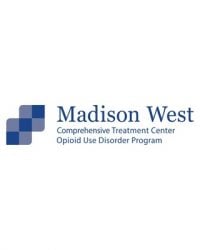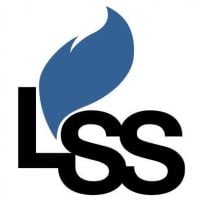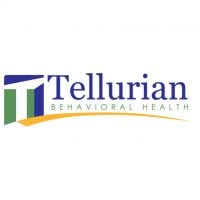Tellurian
Drug Rehab Center in Madison, Wisconsin
- Opioid Addiction
- Dual Diagnosis
- Alcoholism
Tellurian Addiction Treatment Facility in Madison, WI is a top-tier rehab center that offers a range of evidence-based treatment services, comprehensive recovery options, and holistic approaches tailored to individuals suffering from alcoholism, opioid addiction, and dual diagnosis.
About This Wisconsin Facility
Tellurian - Main Campus in Madison, Wisconsin, is an addiction treatment facility focused on helping individuals who are struggling with alcohol and/or drug addictions. The facility offers a variety of levels of care, ranging from inpatient to outpatient, as well as partial-hospitalization and aftercare support services. Tellurian also specializes in dual-diagnosis levels of care, offering comprehensive treatment options for individuals with both a substance abuse and mental health disorder. Tellurian is affiliated with Tellurian and accepts several private health insurance plans. The facility is accredited by The Joint Commission and is licensed by the Wisconsin Department of Health Services.
Tellurian provides evidence-based treatments for individuals suffering from alcoholism, opioid addiction, and dual diagnosis. Specifically, their comprehensive care plans include cognitive-behavioral therapy and individualized assessments which help individuals address the underlying causes of their addiction and provide them with the resources and tools needed to maintain lifelong sobriety. In addition, the facility also offers family support services in order to help rebuild relationships with loved ones. Tellurian’s experienced and knowledgeable multidisciplinary team of doctors, nurses, therapists, and counselors are committed to helping individuals make positive and lasting changes in their lives.
Genders
Ages
Modality
Additional
Conditions and Issues Treated
Opioid addiction is one of the most common forms of addiction Wisconsin. Opioids include drugs like heroin, oxycontin and fentanyl. They are prescribed to treat pain, but they are often abused and they are addictive. The addiction is treated by detoxing the body, so it no longer needs the chemicals in the drugs. This is followed up by therapies to correct behavior and target the root of the problem.
Some of the most common co-occurring disorders are schizophrenia, depression, and bipolar disorder. Most rehab facilities in Madison, WI like Tellurian provide patients with a dual diagnosis. Dual diagnosis gives rehab the means to treat addiction while restoring mental and emotional health.
Levels of Care Offered at Tellurian
This center offers a variety of custom treatment tailored to individual recovery. Currently available are Aftercare Support, Dual-Diagnosis, Inpatient, Outpatient, Partial-Hospitalization, with additional therapies available as listed below.
Inpatient rehabilitation aims to treat severe addictions and co-occurring disorders. Depending on individual requirements, the duration of the stay at Tellurian ranges from four weeks to six months. Wisconsin inpatient recovery guarantees that the patient resides in an environment free of drugs.
An Outpatient Rehab Program is a part-time drug rehab program for treating individuals in Madison, WI with mild addiction or mild-to-moderate drug withdrawal symptoms. It generally requires about 10 to 12 hours every week.
Doctors can administer on-the-spot medication to ease withdrawal symptoms such as anxiety, increased heart rate, and even depression. Groups such as Alcoholics Anonymous (AA) and Narcotics Anonymous (NA) can be used as a part of outpatient treatment to help maintain sobriety.
Aftercare Support at Tellurian, in short, is the support provided to a patient after they have finished treatment. It allows them to adjust to everyday life. It may entail setting them up and enrolling them in services such as Narcotics Anonymous (NA) and Alcoholics Anonymous (AA) inside a halfway house. Career coaching may also be offered to patients to help them get back into the workforce.
Therapies & Programs
Individual therapy refers to one-on-one psychotherapy between a patient and their Tellurian therapist. Individual therapy seeks to help identify the issues that drive and contribute to a client’s addiction or alcoholism. Another goal of individual counseling is to assist the client to learn how to manage their lives without alcohol or drugs.
Group therapy occurs in a group setting as opposed to a one on one setting. It benefits patients by providing a feeling of support and letting them know they are not alone. Patients at Tellurian also learn to build trust and understanding and gain perspective through discussions.
DBT, also known as dialectical behavior therapy, is a form of cognitive behavioral therapy (CBT) that helps people understand how their thoughts, behaviors, and feelings all connect. This can give them more control over their actions, effectively stopping self-harm ideations and attempts in some patients. It can also help put people in control over some mental struggles, like borderline personality disorder.
Most individuals suffering from addiction have low self-awareness, so they end up making poor decisions. Cognitive Behavioral Therapy (CBT) is suitable for patients recovering from an addiction of any kind. Through it, patients become more aligned with their thoughts, emotions, and behaviors, giving them a better opportunity to respond appropriately to temptations and negative feelings.
This therapy modality at Tellurian in Madison, WI strengthens a person’s ability to stay on top of their emotional state and learn new stress management techniques so they won’t give in to the temptations easily. Moreover, CBT helps people communicate and express their emotions well, which can be vital in relapse management. CBT is also suitable for managing co-occurring disorders like depression and bipolar illness.
Eye Movement Desensitization and Reprocessing (EMDR) is designed to help patients process trauma. During the therapy, patients follow a bar of light or watch their therapist’s finger move back and forth. This mimics the eye movements of REM sleep. These are the same movements that allow the brain to reprocess memories. When traumatic memories are reprocessed, it reduces the impact they have on emotions. This treatment, offered by Tellurian, can be helpful to patients who turn to drugs to escape painful memories.
When it comes to maintaining sobriety, people who quit recovery without developing life skills are disadvantaged. While teaching life skills at Tellurian is difficult, support with aftercare helps patients learn these skills over time. Life skills include getting a career, living in a good environment, self-care, and finance management, all in Madison, WI.
Patient Experience
Creative Arts
Creative arts therapy helps people in recovery at Tellurian explore feelings and emotions in a safe environment. Journaling, music, and visual arts, among many others, can help people express themselves in new ways. The goal of creative arts therapy is not an end-product; rather, the process of creating art itself is therapeutic.
Fitness Therapy
Recovery from addiction involves recovering the body and mind. Addiction can damage your health in many ways. Learning how to take care of yourself includes physical fitness. Exercise can release feel good chemicals and can further contribute to positive self-esteem. Self-discipline can be practiced through an exercise regimen as you learn how to take care of yourself. Studies have shown that exercise increases abstinence rates, ease withdrawal symptoms and improve depressive symptoms for those in Madison, WI.
Payment Options Accepted
For specific insurance or payment methods please contact us.
Is your insurance accepted?
Ask an expert, call (888) 674-0062
Additional Details
Specifics, location, and helpful extra information.
Madison, Wisconsin 53716 Phone Number(608) 222-7311 Meta DetailsUpdated November 25, 2023
Staff Verified
Patient Reviews
There are no reviews yet. Be the first one to write one.
Madison, Wisconsin Addiction Information
Wisconsin has some of the highest rates in the United States for both adolescent and adult substance abuse. Since 2009, the state has been experiencing the same escalating rates of drug abuse and addiction as the rest of the country. The major concerns are the misuse of prescription painkillers and the escalating number of deaths due to alcohol-related liver disease.
Madison, Wisconsin is struggling with an opioid crisis. In 2017, there were 234 drug overdoses in Madison. 1 in 5 residents knows someone who has died from a drug overdose. 8.3% of Madison residents report heavy drinking. This area ranks 4th among Wisconsin cities for drug use disorders. The centers in Madison offer a variety of services, including individual and group counseling, medication-assisted treatment, and detoxification.
Treatment in Nearby Cities
- Marshfield, WI (119.4 mi.)
- Ellsworth, WI (195.8 mi.)
- Salem, WI (70.6 mi.)
- Cleveland, WI (98.8 mi.)
- Hudson, WI (216.3 mi.)
Centers near Tellurian




The facility name, logo and brand are the property and registered trademarks of Tellurian, and are being used for identification and informational purposes only. Use of these names, logos and brands shall not imply endorsement. RehabNow.org is not affiliated with or sponsored by Tellurian.

